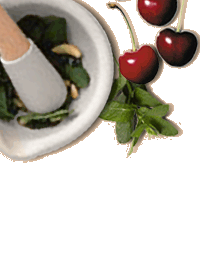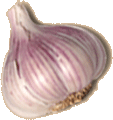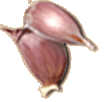Living with Autism – 2
October 28, 2012
Why Do Some Kids Develop Leaky Gut Syndrome?
First, you need to know that I am a strong believer in breastfeeding for infants. Through their mother’s milk, these babies receive a good helping of natural antibodies (IgA, Ig G and IgM – do they sound familiar to you?) through their mother’s colostrum. They help create an adaptive immune system for the child. The most important bioactive components in colostrum are growth factors and antimicrobial factors. This is what protects the baby from day one. Assorted studies agree that breastfeeding helps protect babies from middle ear infections, infant diarrhea, upper respiratory tract infections and urinary tract infections. In children at risk of developing food allergies according to their family history, breastfeeding has been observed to limit infant food allergies, asthma and atopic dermatitis, a form of eczema. Long-term benefits have shown an improved IQ level and better protection against intestinal infections. Finally, a 2005 study concluded that introducing gluten while breast-feeding reduced the risk of celiac disease. Wow! Do you really believe that your baby would get the same benefits from a baby formula? Actually some formulas could foster the development of early childhood allergies to cow’s milk, soy and other mother’s milk substitutes.
They also receive a good amount of friendly probiotics to help keep their digesting systems strong and healthy. A mother’s breast milk contains both healthy bacteria and medium-chain fatty acids, both of which are known disease fighters. According to S. K. Dash, Ph. D., a recognized authority on probiotics, these friendly bacteria are our first line of immune defense.
In a healthy breastfed child, they colonize the intestinal tract, making it difficult for unhealthy bacteria, fungus and other potential health threats to thrive and grow.
What About Medium-Chain Fatty Acids?
Medium-chain fatty acids are known to be antibacterial, antiviral, antifungal and typically detoxifying. At the same time as the child’s immune system is developing, the medium-chain fatty acids in breast milk effectively protect the child from potential pathogens. If you will, these medium-chain fatty acids protect babies until their own immune systems are strong enough to take over.
The final benefit of breastfeeding in my opinion, besides the fact that it’s the cheapest natural food delivery in the world, is that it prevents the child from being fed industrialized baby “food” loaded with sugars, creating potential future addictions, possibly genetically engineered ingredients and all sorts of artificial preservatives and colors, known brain excitotoxins.
Common Sense Deduction? Or Not? You Decide.
So here comes what seems to be a common sense progression: breastfeeding strengthens the baby’s immune system by providing friendly bacteria as well as many other beneficial elements; a strong immune system prevents infections (by the way, eliminating processed dairy products in your child’s diet leads to a much lower incidence of ear infections); a lack of infections prevents the potential overuse of antibiotics possibly leading to leaky gut syndrome which could further lead to some of the gliadin and casein allergy symptoms we see in some autistic children. So, in a very simplistic way: breastfeeding could help prevent some forms of autism. I know, it can be a lot more complex than that, and I defer to higher authorities to debate this point. This is only my humble deduction from the point of view of a nutritherapist.
Should We Use Antibiotics with Infants or Small Children?
Yes we should, but only when it’s really necessary, and in the proper amount for a small child. It should also not be used as a kill-all solution for every ailment that strikes a child, most of which are not bacterial in nature. Most allopathic pediatricians have fallen into the bad habit of prescribing antibiotics at the drop of a hat. To make things worse, they do not educate the parents on the benefits of recolonizing the child’s gut with friendly bacteria. You see, as good as antibiotics are at killing dangerous bacteria, they are also good at killing our friendly bacteria. We should be good to our children and ourselves and get into the habit of taking friendly probiotics after a course of antibiotics in order to help our tiny friends repopulate our intestines and protect our health. The easiest way is to feed them with unsweetened organic, unpasteurized and live soy or coconut yogurt or kefir (please note that because of their most likely damaged digestive system a lot of autistic children are also allergic to soy). The “unsweetened” part is important because, once your friendly bacteria have been destroyed, the not-so-friendly Candida yeast will find a way to invade, creating additional problems such as systemic candidiasis, which could lead to the leaky gut syndrome we talked about earlier.
More to come… part 3
Chef Braux’s Recipe
Petit Déjeuner A Votre Santé. A Votre Santé Healthy Home-made Breakfast Cereal
This recipe is one I created for myself, based on the work of Dr. Budwig of Germany. It is low in sugar, full of soluble fiber and beneficial omega-3 fatty acids. The soy or coconut yogurt will provide live probiotics as well.
Servings: about 30
Prep Time: 10 min.
Finishing Time: 20 min.
INGREDIENTS
To Start:
– 1 bag of GF Rolled Oats (Bob’s Red Mill for example)
Or
– Maple Glazed Buckwheat Flakes (Nature’s Path)
Add:
– 1 cup sliced raw Almonds
– 1 cup raw Walnut or Pecan pieces
– 1 cup raw Sunflower seeds
– 1 cup raw Pumpkin seeds
– 2 cups Raisins or Currants or dried Blueberries
– 1 cup candied Ginger
Just before eating, add:
– 2 tsp Flax seeds (ground) or Chia seeds (whole)
– 2 oz Soy, Almond, Coconut, Hazelnut, or Rice milk (your choice)
– 1 Tbsp unsweetened Soy or Coconut Yogurt
– 1 Tbsp Fish or Cod Liver oil (preferably fruit flavored) or Flaxseed oil
PROCEDURE
1. In a large bowl, mix the cereals with the fruits and nuts.
2. Place in a glass or metal storage container with a tight lid.
3. When ready to use, measure ½ cup into a bowl.
4. Add the ground flax seeds or whole chia seeds (good for omega-3 fatty acids and good fiber for digestion).
5. Pour 1 to 2 ounces of alternative milk of your choice.
6. Add 1 heaping Tbsp of alternative yogurt.
7. Top it off with 1 Tbsp of fruit-flavored Fish or Cod Liver oil, or Flaxseed oil.
8. Mix well. Let it sit for 10 minutes to let the cereal absorb the liquids.
Chef’s tip: In Winter, I let my breakfast warm up at 200F in my toaster oven for another 10 minutes while I get ready for work. Another way to do it hot is to boil your milk and add to your cereal mix, stir, and then add the additional ingredients.
Chef Alain Braux
From: Living Gluten and Dairy-Free on Amazon.com
Disclaimer: This article has been written as an educational tool only. It is not a substitute for the informed medical recommendations of your personal physician or other qualified healthcare provider.








2 comments